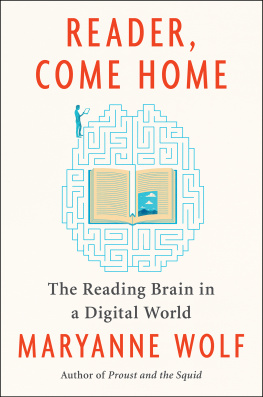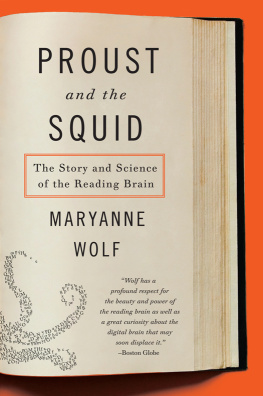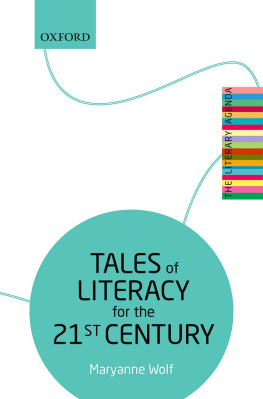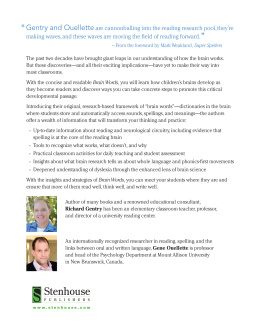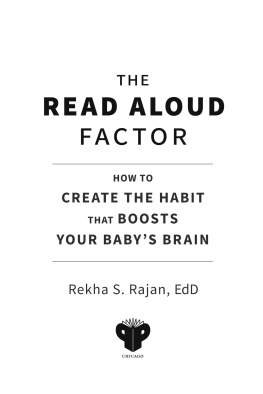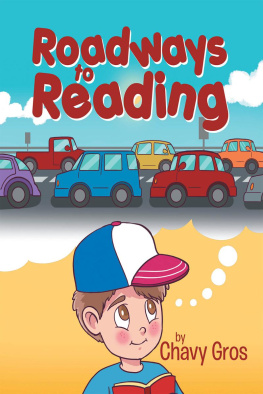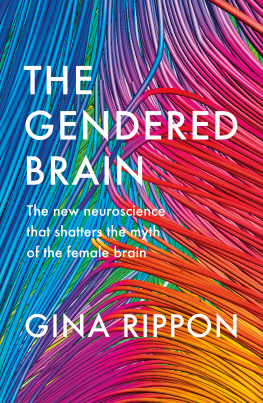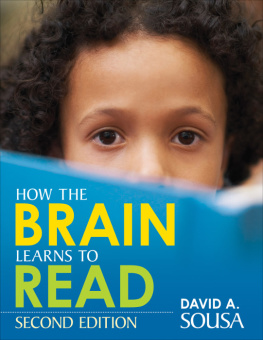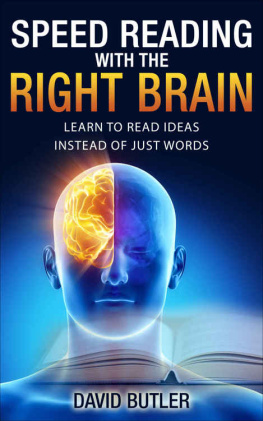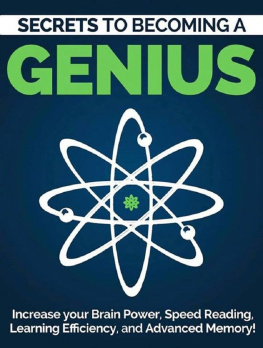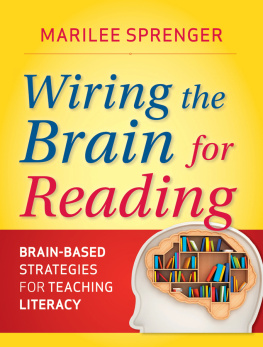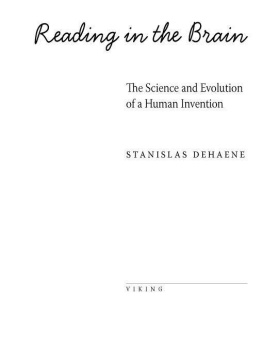Maryanne Wolf - Reader, Come Home: The Reading Brain in a Digital World
Here you can read online Maryanne Wolf - Reader, Come Home: The Reading Brain in a Digital World full text of the book (entire story) in english for free. Download pdf and epub, get meaning, cover and reviews about this ebook. year: 2018, publisher: Harper, genre: Home and family. Description of the work, (preface) as well as reviews are available. Best literature library LitArk.com created for fans of good reading and offers a wide selection of genres:
Romance novel
Science fiction
Adventure
Detective
Science
History
Home and family
Prose
Art
Politics
Computer
Non-fiction
Religion
Business
Children
Humor
Choose a favorite category and find really read worthwhile books. Enjoy immersion in the world of imagination, feel the emotions of the characters or learn something new for yourself, make an fascinating discovery.
- Book:Reader, Come Home: The Reading Brain in a Digital World
- Author:
- Publisher:Harper
- Genre:
- Year:2018
- Rating:3 / 5
- Favourites:Add to favourites
- Your mark:
Reader, Come Home: The Reading Brain in a Digital World: summary, description and annotation
We offer to read an annotation, description, summary or preface (depends on what the author of the book "Reader, Come Home: The Reading Brain in a Digital World" wrote himself). If you haven't found the necessary information about the book — write in the comments, we will try to find it.
A decade ago, Maryanne WolfsProust and the Squidrevealed what we know about how the brain learns to read and how reading changes the way we think and feel. Since then, the ways we process written language have changed dramatically with many concerned about both their own changes and that of children. New research on the reading brain chronicles these changes in the brains of children and adults as they learn to read while immersed in a digitally dominated medium.
Drawing deeply on this research, this book comprises a series of letters Wolf writes to usher beloved readersto describe her concerns and her hopes about what is happening to the reading brain as it unavoidably changes to adapt to digital mediums. Wolf raises difficult questions, including:
Will children learn to incorporate the full range of deep reading processes that are at the core of the expert reading brain?
Will the mix of a seemingly infinite set of distractions for childrens attention and their quick access to immediate, voluminous information alter their ability to think for themselves?
With information at their fingertips, will the next generation learn to build their own storehouse of knowledge, which could impede the ability to make analogies and draw inferences from what they know?
Will all these influences, in turn, change the formation in children and the use in adults of slower cognitive processes like critical thinking, personal reflection, imagination, and empathy that comprise deep reading and that influence both how we think and how we live our lives?
Will the chain of digital influences ultimately influence the use of the critical analytical and empathic capacities necessary for a democratic society?
How can we preserve deep reading processes in future iterations of the reading brain?
Who are the good readers of every epoch?
Concerns about attention span, critical reasoning, and over-reliance on technology are never just about childrenWolf herself has found that, though she is a reading expert, her ability to read deeply has been impacted as she has become, inevitably, increasingly dependent on screens.
Wolf draws on neuroscience, literature, education, technology, and philosophy and blends historical, literary, and scientific facts with down-to-earth examples and warm anecdotes to illuminate complex ideas that culminate in a proposal for a biliterate reading brain. Provocative and intriguing,Reader, Come Homeis a roadmap that provides a cautionary but hopeful perspective on the impact of technology on our brains and our most essential intellectual capacitiesand what this could mean for our future.
Maryanne Wolf: author's other books
Who wrote Reader, Come Home: The Reading Brain in a Digital World? Find out the surname, the name of the author of the book and a list of all author's works by series.

